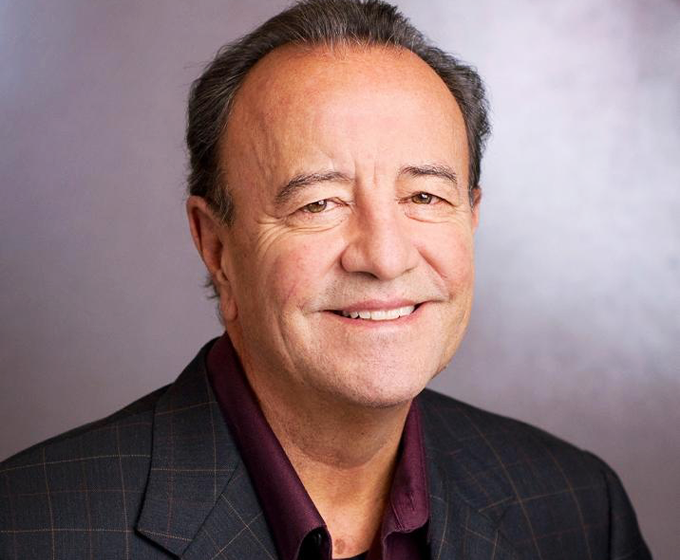
SEPTEMBER 4, 2020 — Joe Louis Martinez Jr., founder and former director of UTSA’s Neurosciences Institute, passed away on August 29 after a long battle with liver cancer. He was 76.
Martinez was born in Albuquerque, New Mexico, on August 1, 1944. He received his B.A. from the University of California, San Diego; graduated with his M.S. in experimental psychology from New Mexico Highlands University in 1968; and earned his Ph.D. in physiological psychology in 1971 from the University of Delaware. He completed his postdoctoral training at the University of California, Irvine, and the Salk Institute in San Diego.
Martinez served as a professor in the Department of Psychology at the University of California, Berkeley, from 1982 to 1995. During this time he led an internationally recognized research laboratory and departed as professor emeritus.
In 1995 he joined UTSA as the Ewing Halsell Distinguished Chair in psychology. From 1995 to 2012 he was a beloved professor who founded and directed the Cajal Neuroscience Research Center, now known as the UTSA Neurosciences Institute. He oversaw the design and construction of the Biosciences Building, UTSA’s first research building. Each floor in the BSB contains tiles representing the neuroanatomical drawings of Santiago Ramon y Cajal.
During his tenure at UTSA, Martinez brought over $15 million in grant funding to the university.
In 2013 he moved to the University of Illinois at Chicago to become the chair of the department of psychology. He retired in 2016.
A passionate advocate for the advancement of underrepresented minorities in STEM, Martinez cofounded the Summer Program in Neuroscience, Ethics and Survival, a month-long course supported by the National Institutes of Health at the Marine Biological Laboratory in Woods Hole, Massachusetts.
For over 20 years he codirected the American Psychological Association’s Diversity Program in Neuroscience, which supports the training of diverse doctoral and postdoctoral neuroscience students. He also led the APA’s efforts to develop a perpetual fund to provide permanent support for the training of diverse neuroscientists.
While at UTSA, Martinez mentored and graduated eight Ph.D. students—five of which were members of the underrepresented minority community.
Martinez is known for his research on the modulation of learning and memory and the role of enkephalins in learning, memory and synaptic plasticity. He published approximately 200 research articles in peer-reviewed journals and edited the book Chicano Psychology and multiple editions of The Neurobiology of Learning and Memory.
In lieu of flowers the family requests donations be made to the Scholarships to Enhance and Empower Diversity Fund of the American Psychological Foundation.
He received many professional awards, including election as a fellow of the American Association for the Advancement of Science in 1995, the AAAS Mentor Award for Lifetime Achievement in 1994 and the Association for Neuroscience Departments and Programs Education Award in 2003.
He is survived by his wife of 31 years, Kimberly Smith-Martinez; children Adan Martinez and Adria Chavez; granddaughters Amaia Pilar Chavez, Aric Martinez and Ariél Martinez; siblings Inez Martinez, Carmen Martinez-Tittman and Damon Martinez; and his Great Dane, Baloo.
UTSA Today is produced by University Communications and Marketing, the official news source of The University of Texas at San Antonio. Send your feedback to news@utsa.edu. Keep up-to-date on UTSA news by visiting UTSA Today. Connect with UTSA online at Facebook, Twitter, Youtube and Instagram.
Move In To COLFA is strongly recommended for new students in COLFA. It gives you the chance to learn about the Student Success Center, campus resources and meet new friends!
Academic Classroom: Lecture Hall (MH 2.01.10,) McKinney Humanities BldgWe invite you to join us for Birds Up! Downtown, an exciting welcome back event designed to connect students with the different departments at the Downtown Campus. Students will have the opportunity to learn about some of the departments on campus, gain access to different resources, and collect some giveaways!
Bill Miller PlazaCome and celebrate this year's homecoming at the Downtown Campus with food, games, giveaways, music, and more. We look forward to seeing your Roadrunner Spirit!
Bill Miller PlazaThe University of Texas at San Antonio is dedicated to the advancement of knowledge through research and discovery, teaching and learning, community engagement and public service. As an institution of access and excellence, UTSA embraces multicultural traditions and serves as a center for intellectual and creative resources as well as a catalyst for socioeconomic development and the commercialization of intellectual property - for Texas, the nation and the world.
To be a premier public research university, providing access to educational excellence and preparing citizen leaders for the global environment.
We encourage an environment of dialogue and discovery, where integrity, excellence, respect, collaboration and innovation are fostered.